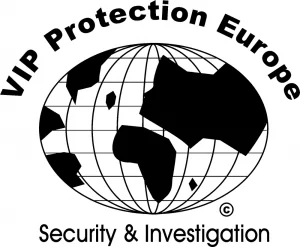A well-trained bodyguard is the guarantor of a person’s safety, but he obviously cannot escape the laws of the country in which he works. The European Commission has also issued clear guidelines on the circulation of firearms within the Union. The two main objectives of the firearms directive are to ensure the proper functioning and high level of security in the EU. The rules are imposed for the acquisition and possession of firearms for a civilian use within the continent.
It is important to distinguish between different weapons categories, each of which corresponds to different law enforcement regimes:
– Category A: prohibited firearms. Automatic and military weapons.
– Category B: firearms subject to authorization. Semi-automatic weapons, single or multiple shot. They are mostly used by snipers and hunters, and can not exceed 60 cm in length.
– Category C: firearms subject to declaration. Long-barrelled single shot semi-automatic weapons that do not belong to the previous category. This applies mostly to hunters.
– Category D: other firearms, one shot with smooth barrel.
All weapons must be traced and recorded. The same applies of course to those belonging to the bodyguard, and they are classified into the various categories. The European amendments also state that a digitized data system is needed to enhance the traceability of firearms. The system will record all data on the firearms involved.
Anyone who wants to own a firearm usually must need it for a work purpose. This person must have more than 18 years old. It shall not constitute a danger to itself or to public order or public security. Having already been convicted of a violent crime is then an indication of danger to the community, which prohibits the weapon for this individual. A bodyguard must also have a clean criminal record in order to perform his function.
Article 4 of Directive 91/477 / EEC states that weapons must not only be marked and recorded, but also neutralized where necessary. Any weapon must have an owner.
The definition of a firearm, according to the European institutions, is: « any cannon weapon intended to expel a shot, to fire a bullet or projectile, by the action of a combustible propellant ».
The bodyguard must then be careful to be sure to carry a weapon in Europe, making the necessary arrangements.
Can a bodyguard carry a weapon in Europe?
A bodyguard can carry a weapon in Europe as part of his job. The acquisition or possession of a weapon is indeed possible for the army, the public authorities and the police. However, the close security officer is distinguished from the legal point of view of his counterparts in the police or the army.
Possession and acquisition of a firearm is permitted for those who hold a license. The acquisition of a weapon belonging to categories C or D is subject to the permit in accordance with country’s national law. It is granted the right to carry a weapon to all those who work for a good purpose and who have two qualifications:
– The person is over 18 years of age.
– He does not represent danger.
The authorities may withdraw the permit from persons who no longer meet the latter criterion. Members of the EU have no authority to prevent a resident from possessing a firearm that has been acquired in another EU country, unless the firearm is banned in the territory.
The bodyguard may carry a weapon that is « identified », i.e. that includes the manufacturer’s name, a serial number, and year of manufacture or that is identified by a number or alphanumeric code. This makes easier all procedures. Moreover, a European weapon pass introduced by Directive 91/477/ EEC is issued by the authorities of a member state to all persons who have the right to carry a weapon. This pass is not transferable, and is valid for a maximum of 5 years (it can be renewed). It is interesting to note that some countries have issued a large number of passes, such as Austria (38,000 passes) and France (over 39,000, and authorization to carry weapons for security guards are more common now n this country). In Italy, there are only 20,000. Bodyguards must pay attention to the control of possession of weapons at the external borders of the EU.
The close protection agents are therefore subject to strict rules, and these must fulfil the necessary conditions which entitle them to obtain a professional card which concerns all security’s professions. European countries issue these documents if the candidate has a criminal record, and has received a recognized training. Note that the bodyguard does not have the status of policeman, and is subject to the same prerogatives as the ordinary citizen. He can also work in civilian clothes and armed, thanks to an exceptional authorization to carry a weapon. Indeed, the close protection agent is exposed to high risks for his own life …
In addition, a bodyguard is subjected constantly to a professional training. This includes shooting sessions, which allow him to sharpen his reflexes and the proper handling of weapons. These sessions, that are necessary, guarantee an excellent and mastered work by the agent. The priority, both for the bodyguard and for the company that employs him, or the state that allows him to carry a weapon, is security above all!
